When a car loaded with large boxes stopped near School 320 in Kyiv, none of the students had any idea that this was the beginning of a special day that would unite the hearts of children in Kyiv and Munich.
German journalist Michael Watzke arrived with a special mission – to deliver gifts from German families to Ukrainian first-graders. This visit became a symbol of how simple human stories can turn into bridges of friendship between people, even in the most difficult times.
“The children had a hard time lifting the generous gifts.”
“We were very impressed when we received that letter from Germany,” says school principal Yana Markova. “The story began with the fact that a Ukrainian girl who moved to Germany due to the war was studying in one of the Munich schools.”
German parents, having learned about Kyiv School 320, were pleasantly surprised by its activity and progressive approach to education. They carefully studied the institution’s website and its presence on social networks. They noticed that the schools were similar in size and number of students.
“It was a completely spontaneous initiative,” emphasizes the director. “We did not ask for anything; it was their own desire to show their support and understanding of the situation in which Ukrainian children found themselves.”
Special boxes filled with sweets and toys were also prepared for first-graders who were in School 97. Each gift was individually selected and wrapped by German families.
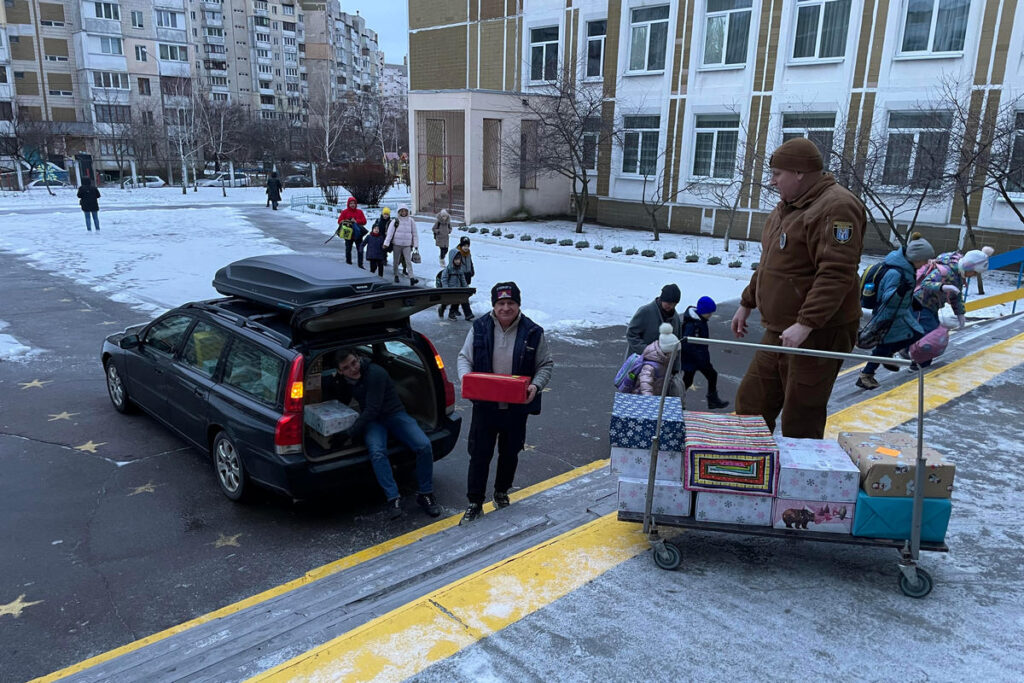
“When the students carried these gifts, it was even difficult for them to lift them,” recalls the director with a smile. “But the children’s eyes shone with such joy that this weight seemed completely insignificant to them.”
The reaction of the little students was instant and sincere. Some immediately unwrapped the gifts in the classroom, showing their treasures to their classmates, and some decided to take them home to share the joy with their parents.
“They shouted “Thank you, thank you!” – and it was so sincere, so childishly direct,” says Yana Markova.
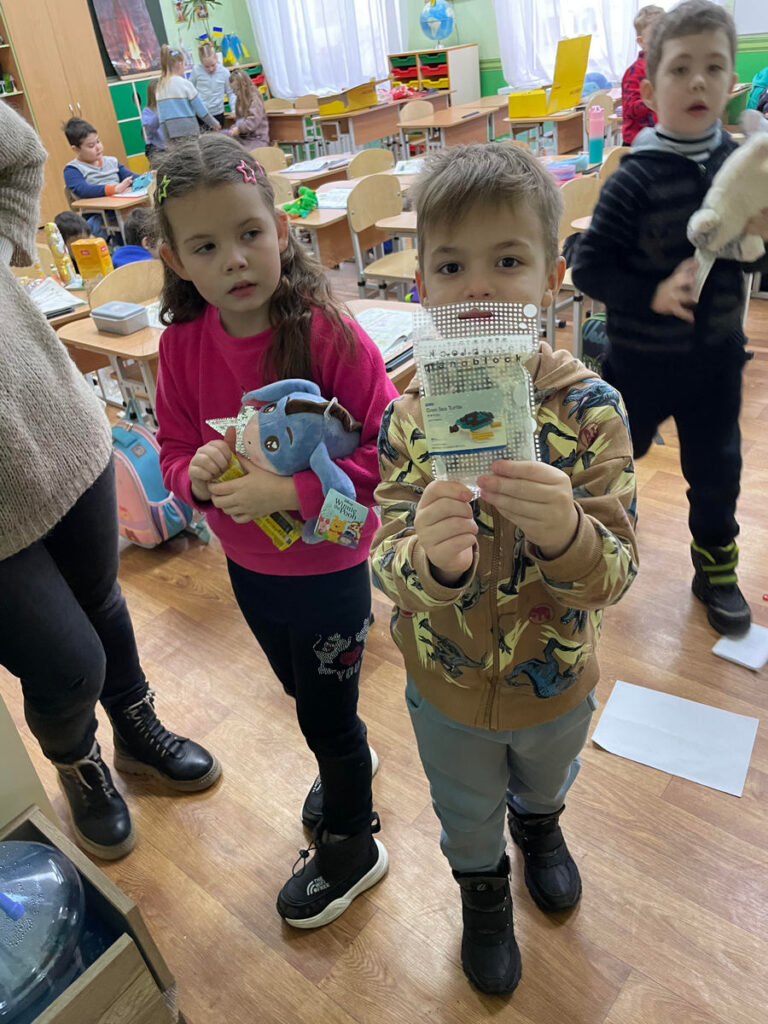
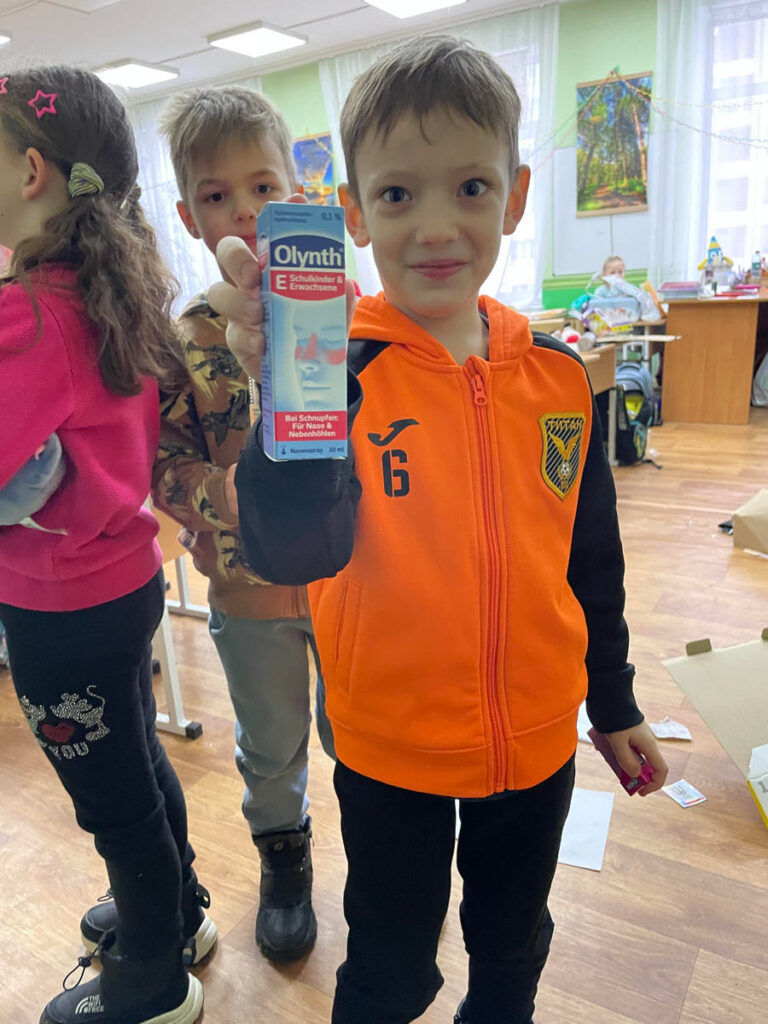
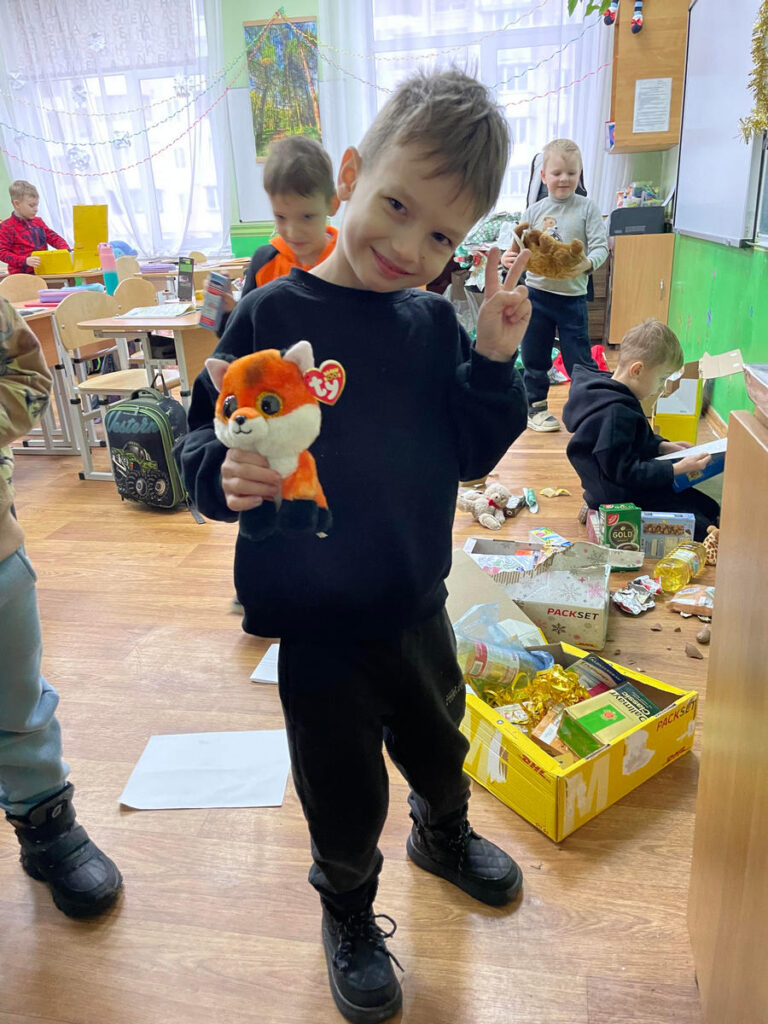
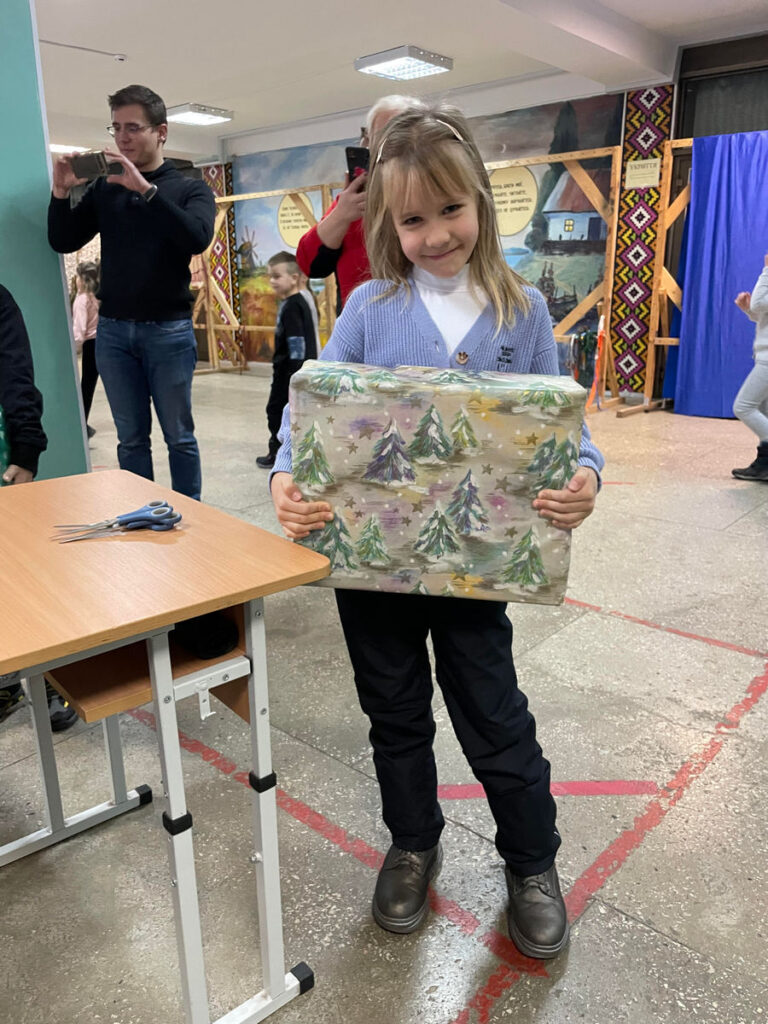
School in conditions of war
But this initiative turned out to be something more than just handing out gifts.
“This is an important message that people two thousand kilometers away understand that life is not easy for us,” emphasizes Yana Markova. “They see that our children are ordinary, they just want to be happy, learn, communicate.”
Journalist Michael Watzke, who personally brought the gifts, was deeply impressed by what he saw in the Kyiv school.
“We admire the resilience and strength of the teachers and students,” he shares his impressions with the NUJU information service. “Their willingness to endure all the hardships of war is impressive, especially when they are forced to go down to the school bomb shelter again and again, sometimes for several hours and up to three times a day – and all this without complaints!”
He was especially impressed by how the teachers managed to turn the basement into a cozy learning space.
“They created a real classroom there, but still – it is a huge challenge for children aged 6-10 to hear sirens and live partly underground,” notes Michael Watzke. The most moving moment for the German journalist was the moment of the morning ceremony honoring the memory of the fallen defenders of Ukraine.
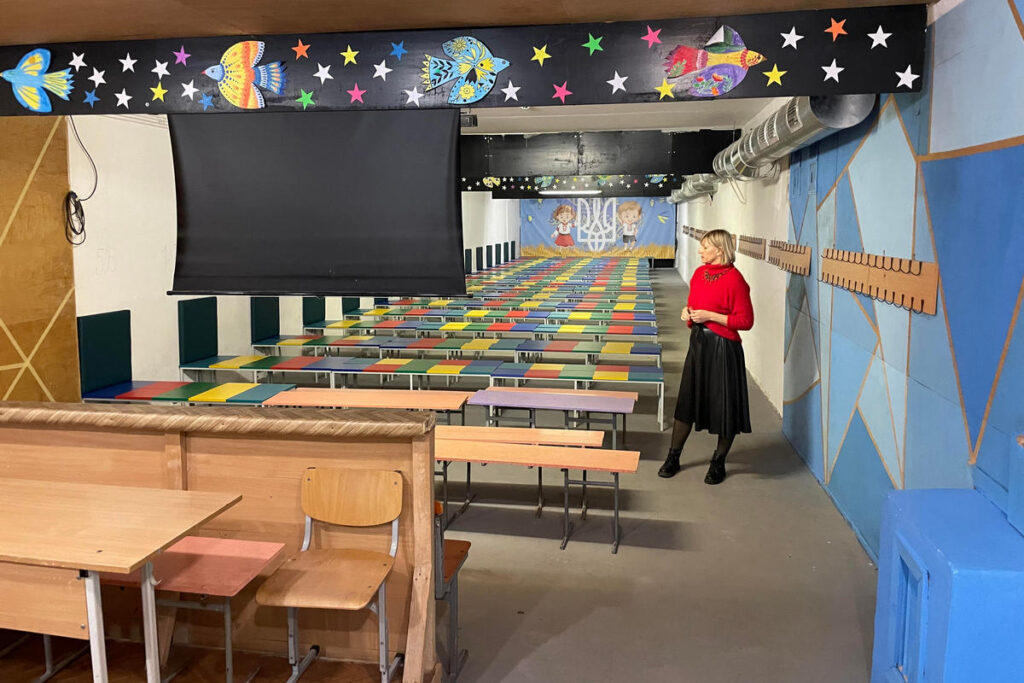
“At 9 a.m., all the students stood quietly and solemnly at their desks, honoring the memory of the fallen soldiers,” says Michael Watzke. “A former student and the brother of a current student died in this school. Their portraits are placed in the entrance hall. This moment was heartbreaking.”
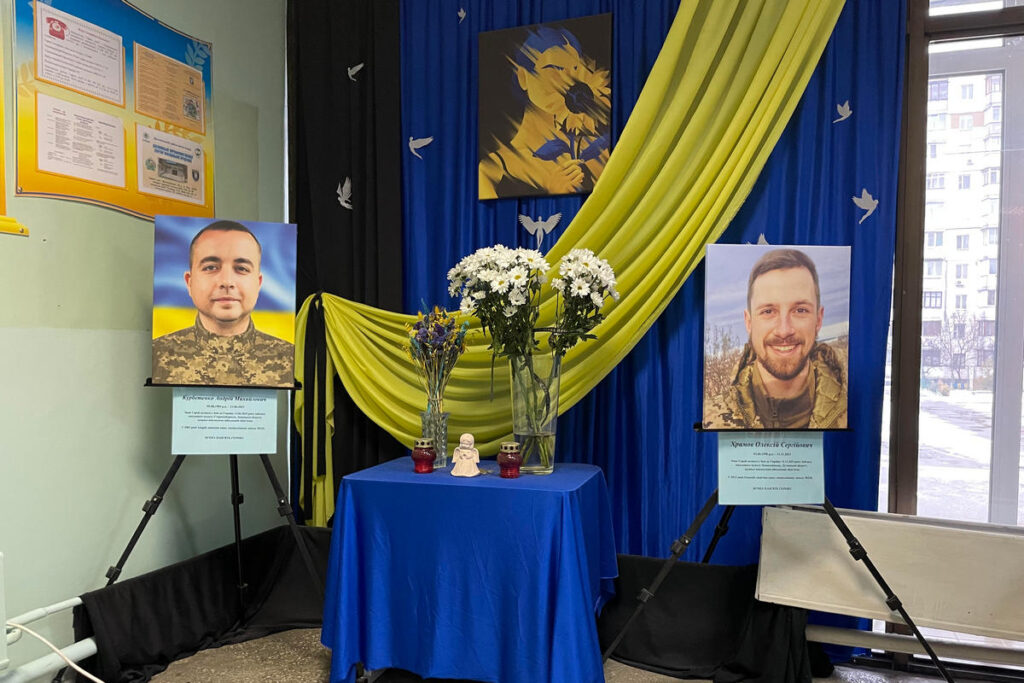
Yana Markova adds that the school tries to support every student, especially those whose families were directly affected by the war.
“We have children whose parents died; there are those where the mother serves, and the child lives with the grandmother. Each such story is a separate pain, but also a separate story of courage,” says the director.
Interestingly, before the war, School 320 itself had been actively involved in charity.
– We prepared gifts for children deprived of parental care, – recalls Yana Markova. – Before the war itself, in the winter of 2021, we made individual boxes for children with cancer. Then we felt what the one who gives feels. And that day we found ourselves on the other side for the first time – we felt what it is like when you are supported.
The school decided to give additional gifts, which turned out to be more than first-graders, to older students whose parents are serving in the military or were killed during the war.
– This was our joint decision with our German friends – to give joy to those who are currently having a particularly difficult time, – explains Yana Markova.
– Most people in Germany understand that Ukrainians are fighting not only for their freedom but also for ours, – emphasizes Michael Watzke. – Germany not only sends weapons and ammunition, being the second largest supplier after the United States but also tries to help civilians, especially children, survive the winter.
The journalist especially notes how he was struck by the politeness of the Kyiv schoolchildren.
“Every child, passing by us in the morning, when we were unloading gifts, politely greeted us with “good afternoon” – and this is despite the fact that they didn’t even know that these packages were intended for them!” Michael Watzke notes with admiration.
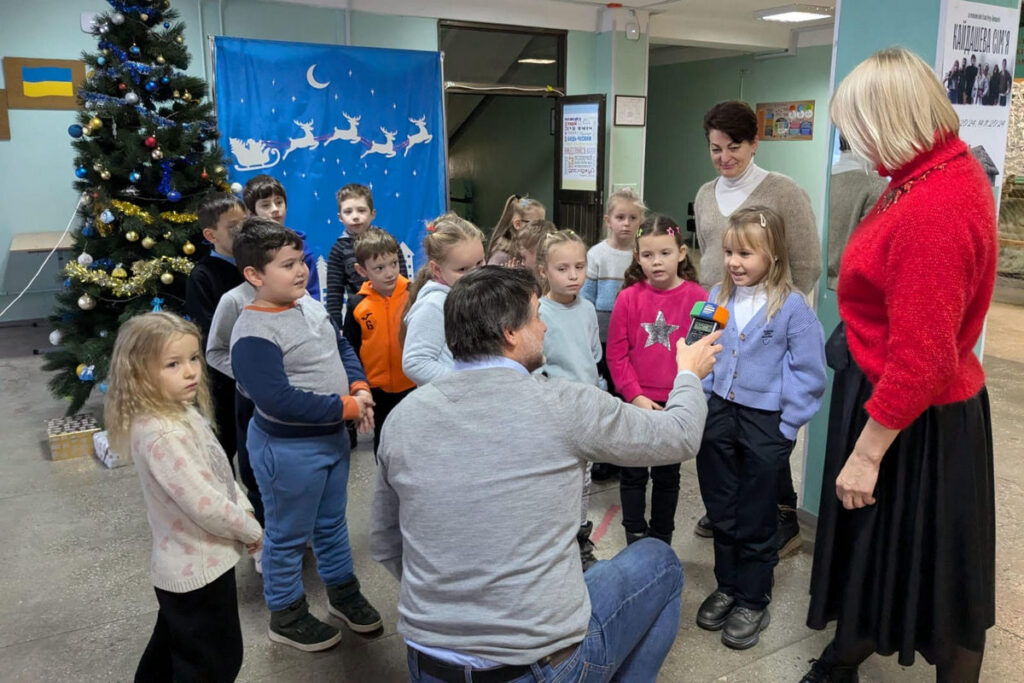
A journalist’s view of Kyiv
“This is a very touching story about how professional journalism can not only cover events but also do good,” notes Sergiy Tomilenko, the President of the National Union of Journalists of Ukraine, who met with his German colleague at the NUJU office. “Michael Watzke showed an example of how journalists can be a bridge between peoples. It is especially important that this initiative was born spontaneously, from the heart, and its heroes were children… Such stories remind us that despite all the trials that Ukraine is currently experiencing, the world does not remain indifferent, and support sometimes comes from the most unexpected sources. The NUJU welcomes such manifestations of solidarity and friendship between the Ukrainian and German communities, especially when they are implemented with the participation of media representatives.”
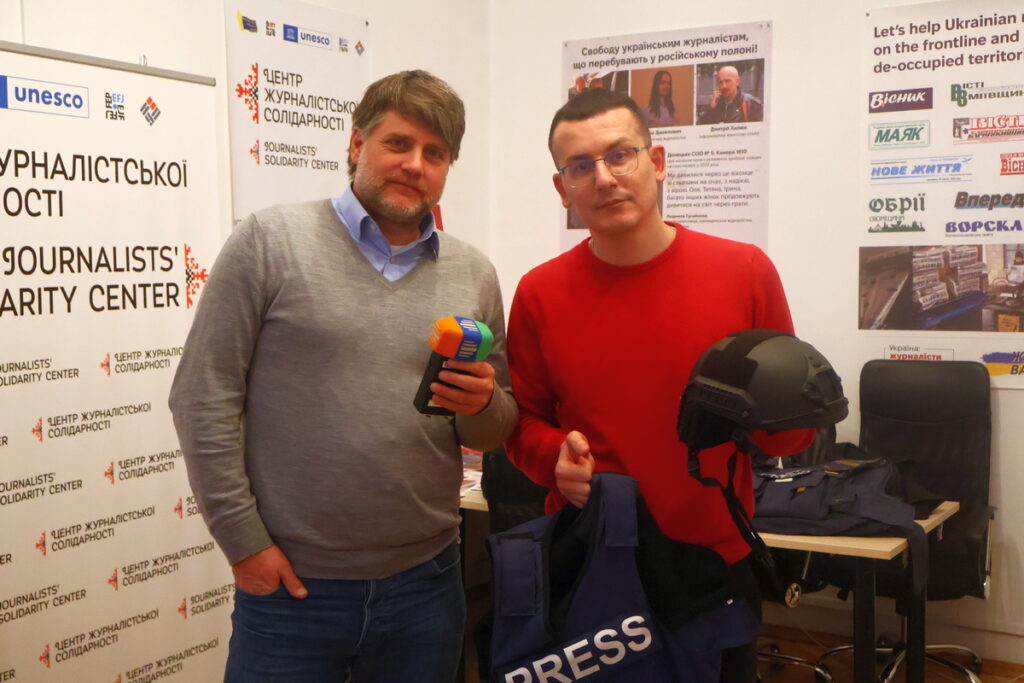
Michael Watzke told the NUJU news service that he had many interesting meetings in Kyiv and is looking forward to the opportunity to tell his listeners about them on Deutschlandfunk radio.
He especially remembered meeting a young programmer who used to live and work in Munich but decided to return to Ukraine to help the army.
“She is now a member of the ‘print army’ – she prints parts for drones on four 3D printers in her apartment for the Ukrainian military,” the journalist says. “At the same time, she continues to work at her main job from 9 a.m. to 6 p.m. She invests a lot of time and money to help her country win.”
The initiative of the Munich parents has become an example of how personal ties between German and Ukrainian families create strong bridges of mutual understanding and support in these difficult times.
“We hope that our initiative will send a signal to teachers, children, and their parents that people in Munich care deeply about their sister city Kyiv and Ukraine and its people in general,” concludes Michael Watzke.
In turn, Yana Markova adds:
“When you see such manifestations of humanity and care, you realize that we are not alone in this struggle, that there are people who understand and support us, even if they live in another country, so far away, it would seem…”
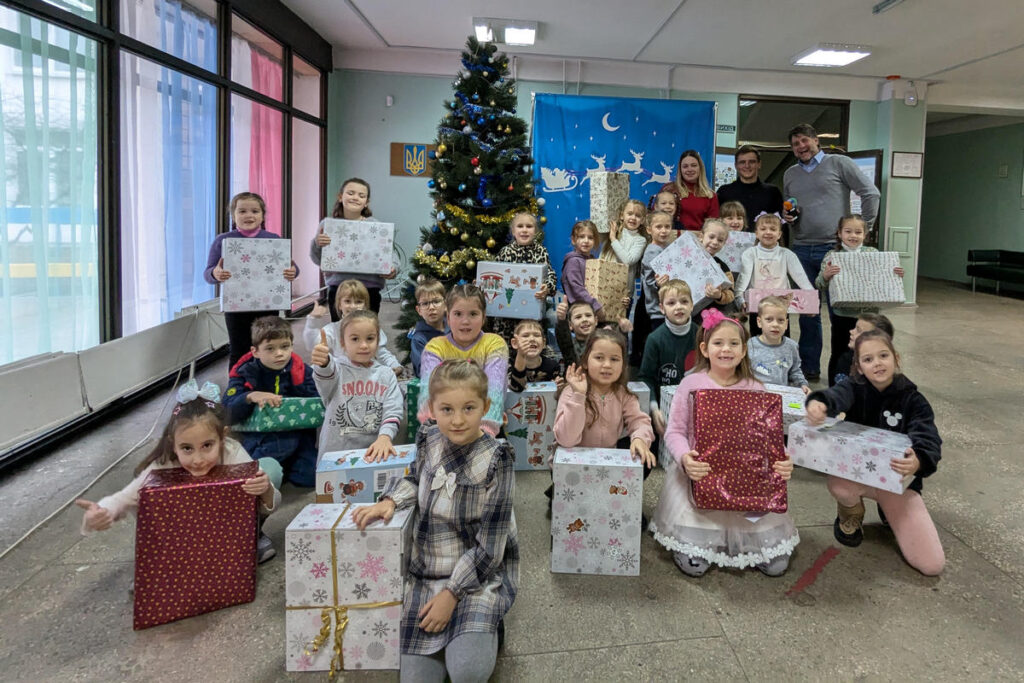
Maksym Stepanov, NUJU Information Service

 THE NATIONAL UNION OF
JOURNALISTS OF UKRAINE
THE NATIONAL UNION OF
JOURNALISTS OF UKRAINE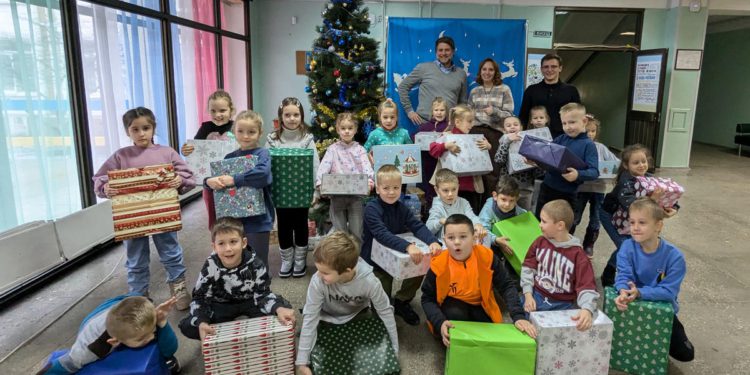
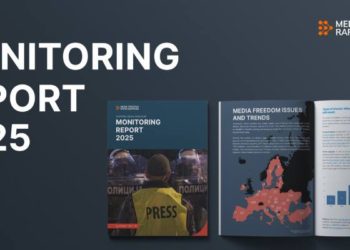
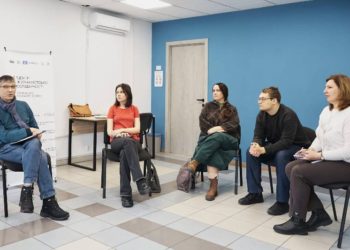
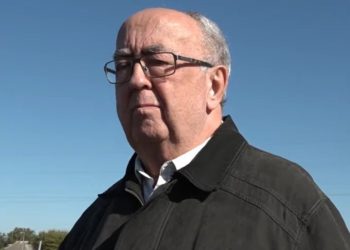













Discussion about this post